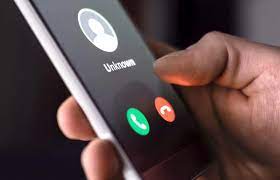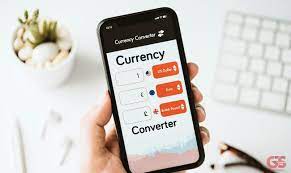Warning: Who Is Calling Me from These Numbers uk 8007613362, 08456021111, 1315614532, 8456021111,07868 802242, 0131 561 4532, 7868802242, 8000521251,0800 023 2635, 8004970747, 0800 052 1251, 8000232635, 3001232323, 0800 497 0747, 2037810895, 8000338005, 3452962834, 7700161656, +44 800 761 3362, or in the UK?
Warning: who is calling me from this number 8007613362, 08456021111, 1315614532, 01330202234,: where communication is at our fingertips, receiving an unexpected call from an unknown number can be both intriguing and concerning. With the advent of various communication platforms, including smartphones, landlines, and internet-based calling services, the identity behind those unfamiliar numbers becomes a puzzle waiting to be solved. The UK has witnessed its fair share of enigmatic phone numbers, each carrying its own set of mysteries and potential implications.
Also read : https://goodnewsbyte.com/unveiling-the-identity-of-callers-investigating-911196954-607123000/
The Intrigue of Unknown Numbers
The digital era has brought with it convenience and connectivity, but it has also opened the door to various privacy concerns. While caller ID systems can often identify contacts from our address books, many calls come through with no recognizable name or affiliation. Such calls might bear seemingly random combinations of digits, like 8007613362, 08456021111, or 1315614532. Each of these numbers, seemingly devoid of context, triggers curiosity and sometimes even apprehension.
Unmasking the Mystery
As the curiosity surrounding these unidentified numbers grows, many individuals turn to online resources and communities to unravel their origins. Online forums and platforms often serve as places where users share their experiences and insights. People share stories of calls received from numbers like 01330202234, 02922640972, and 07868-802242, speculating about their possible sources and intentions.
Potential Origins and Intentions
Warning: who is calling me from this number 8007613362, 08456021111, 1315614532, 01330202234,:Unknown numbers can originate from various sources, each with a different intention behind the call. Some might be innocuous, such as marketing or survey calls. Others might be more dubious, potentially linked to scams or fraudulent activities. The presence of numbers like 8000521251 or 0800-023-2635 in the mix further highlights the diversity of these incoming calls.
The Role of Technology
Modern technology has enabled both legitimate and nefarious actors to manipulate caller ID information. This practice, known as “spoofing,” allows callers to display any number they choose on the recipient’s caller ID, potentially leading individuals to answer calls they would otherwise ignore. This tactic is often used by scammers to make their calls appear more authentic, making it even harder for individuals to discern the true origin of incoming calls.
Guarding Against Unwanted Calls
Given the potential risks associated with answering calls from unknown numbers, individuals are advised to exercise caution. While curiosity might drive one to pick up such calls, it’s essential to prioritize personal safety and privacy. Techniques such as not answering unknown numbers, using call-blocking apps, and maintaining awareness of common phone scams can help individuals safeguard themselves against potential threats.
Legal and Regulatory Framework
Warning: who is calling me from this number 8007613362, 08456021111, 1315614532, 01330202234,:To combat the rising tide of fraudulent and unwanted calls, governments and regulatory bodies have taken steps to enforce stricter rules on telemarketing and unsolicited communications. In the UK, for instance, the Information Commissioner’s Office (ICO) enforces regulations like the Telephone Preference Service (TPS), allowing individuals to opt out of receiving marketing calls. These measures aim to strike a balance between allowing legitimate businesses to communicate with consumers and protecting individuals from intrusive or malicious calls.
Conclusion
Warning: who is calling me from this number : The enigmatic phone numbers that occasionally grace our caller IDs in the UK are emblematic of the challenges and opportunities presented by the digital age. With technology providing both anonymity and connectivity, it falls upon individuals to discern the intentions behind these calls and protect themselves from potential threats. By remaining informed about common scams, utilizing available resources, and understanding the regulatory landscape, individuals can navigate the world of unknown numbers with greater confidence and security.
Frequently Asked Questions (FAQs):
Q1: Why am I receiving calls from these numbers?
A1: These calls could be attempts at phishing, scamming, or even identity theft. The perpetrators might be trying to extract personal information, financial details, or even install malware on your device.
Q2: How do I identify a potentially fraudulent call?
A2: Unsolicited calls from unknown numbers that urge you to provide sensitive information or prompt you to take immediate actions, such as sharing financial details, are likely scams. Be cautious if the caller refuses to disclose their identity or the purpose of the call.
Q3: What should I do if I receive such a call?
A3: It’s best to hang up immediately without engaging in conversation. Do not provide any personal information or follow any instructions given by the caller. If the call claims to be from a legitimate organization, independently verify their contact details from their official website or other trusted sources before taking any action.
Q4: Can these calls be harmful to my device or personal data?
A4: Yes, some fraudulent calls may attempt to install malicious software on your device. This malware can compromise your personal information, steal sensitive data, or even hijack your device for nefarious purposes.
Q5: How can I protect myself from these calls?
A5: Implement these measures:
- Register your number on the Telephone Preference Service (TPS) to reduce unsolicited marketing calls.
- Consider using call-blocking apps or features provided by your mobile service provider.
- Never share personal or financial information over the phone unless you’re certain about the caller’s legitimacy.
- Be cautious of callers pressuring you into immediate action.
Q6: What should I do if I’ve already provided information to such a caller?
A6: If you’ve shared personal or financial information, contact your bank or relevant financial institutions immediately to secure your accounts. Also, be vigilant about any unusual activities related to your accounts.
Q7: Can I report these calls?
A7: Yes, you can report these calls to the Information Commissioner’s Office (ICO) and Action Fraud. These agencies work to combat fraudulent activities and protect individuals from scams.
Q8: Are there any updates on regulatory actions against such calls?
A8: Regulatory bodies are continually working to address this issue. However, scammers often find new ways to circumvent regulations. Stay informed through official sources about the latest updates and advice on protecting yourself.
Q9: Are all calls from these numbers fraudulent?
A9: Not necessarily, but due to the increasing instances of fraudulent calls, it’s important to exercise caution with any call from an unfamiliar number. Legitimate organizations will not pressure you for sensitive information.
Q10: How can I stay informed about phone-related scams?
A10: Stay updated by following official communications from government agencies, law enforcement, and telecommunications companies. Be cautious of information shared through social media or unknown sources.





